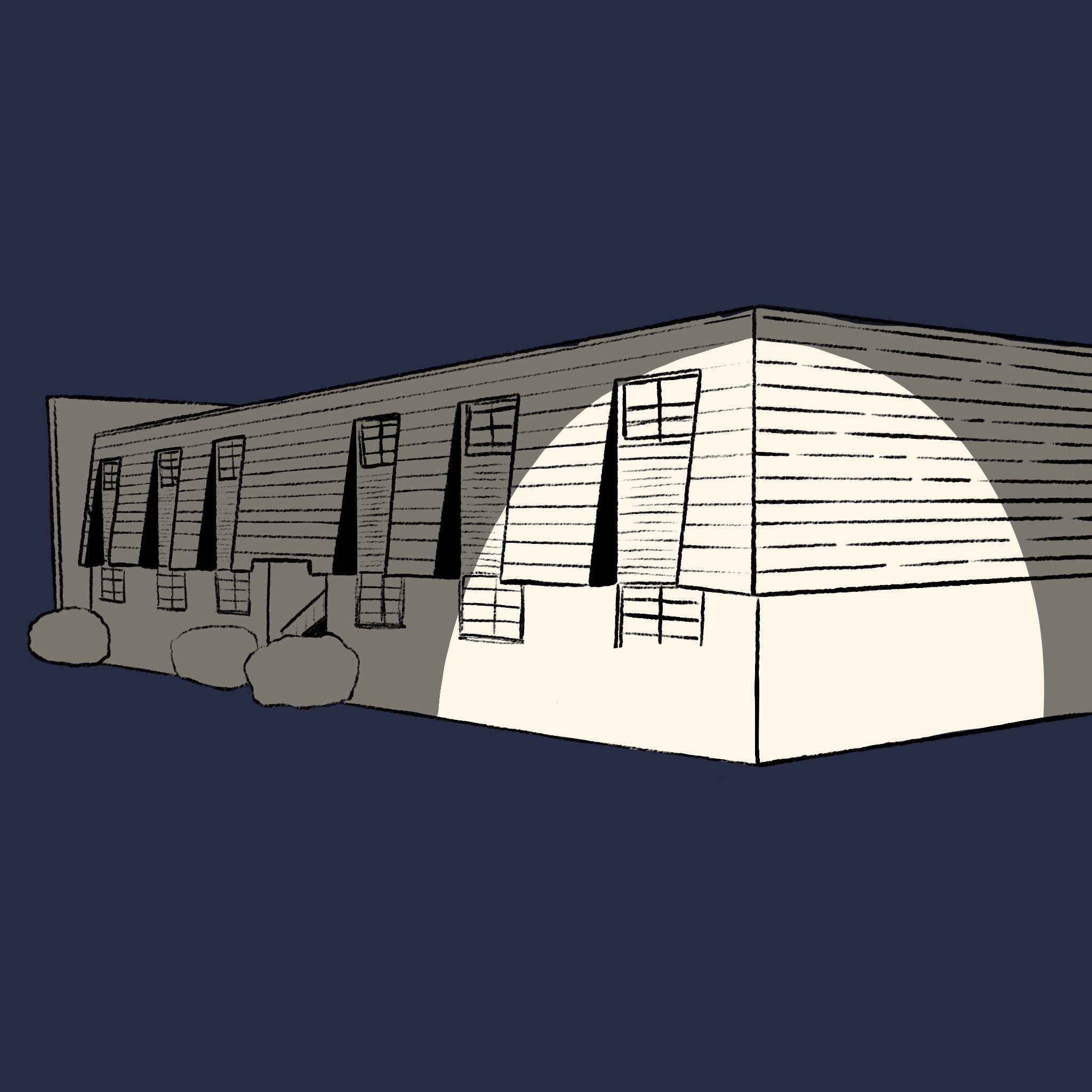Since June, the US Department of Housing and Urban Development (HUD) has inspected at least 1,200 HUD-subsidized properties, agency data shows. But thousands of inspections are overdue, despite agency goals to eliminate the backlog in spring of this year.
For public housing owned by housing authorities and privately owned multifamily housing that receives HUD funding, the agency relies on inspections to hold landlords accountable for unaddressed safety hazards.
Last month, Streetlight reported that longstanding problems with the inspection program and HUD’s oversight place renters’ lives at risk.
Since then, HUD’s inspections and oversight of the properties it subsidizes have drawn attention from Republican Sen. Marco Rubio, who urged HUD to ensure gas leak repairs were made at a Florida apartment complex at the beginning of August.
Conversations with legal aid attorneys and tenant organizers illustrate that problems with HUD’s inspection program are part of a bigger pattern of the agency failing to respond to serious health and safety hazards at properties receiving its funding.
They said HUD’s inspection program and tenant complaints about properties don’t prompt oversight from the agency or repairs to sustained health and safety dangers, including gas leaks. Several said they had better luck obtaining repairs with help from activists, politicians or code enforcement teams.

Three members of HUD’s public affairs office didn’t respond to an interview request or answer questions sent by email, including questions Streetlight has asked since July.
Ethan Handelman, HUD deputy secretary for multifamily housing, didn’t respond to an interview request. Neither did Ashley Sheriff, deputy assistant secretary for HUD’s real estate assessment center, which conducts the agency’s inspection program.
More HUD oversight needed, advocates say
Several legal aid attorneys said that aside from housing conditions, it appears HUD isn’t monitoring other areas that need oversight in public and multifamily housing.
For instance, landlords for subsidized housing are required to recalculate residents’ rents each year to account for income changes. Two legal aid attorneys in Florida said HUD has had inadequate oversight over whether landlords are meeting that requirement, called recertification.
“We really don’t see that HUD takes an active role in ensuring that the owners of these properties provide tenants with safe housing or housing where your rent is based on your actual income,” said Mary DeVries, division chief of Jacksonville Area Legal Aid’s housing unit. “We do see some relief if the media or politicians get involved.”
Ed Gramlich, senior advisor for the National Low Income Housing Coalition, said the coalition often hears from tenants about health and safety hazards in public and multifamily housing. Occasionally, coalition board members who lived in multifamily housing also have had problems with living conditions.
“We got them in touch with upper-level, career staff at HUD headquarters, and that still doesn’t seem to get problems fixed,” Gramlich said. “So something breaks down, even when residents have connections with HUD officials, and most residents don’t.”
HUD is currently transitioning to a new inspection system. The new rules allow residents to choose up to five units for inspection, but they aren’t included in a property’s score.
[ Read more: HUD hasn’t inspected some subsidized properties for a decade or longer, agency data says ]
Sharon Sherman, executive director of the Greater Syracuse Tenants Network in New York, said inspection results provide benchmarks and historical context on how well a property is managed. But renters living in HUD-subsidized housing in urban areas of New York state tend to get faster results from local code enforcement than from the inspection system, she said.
“There is value in the system,” Sherman said, “But it’s far from perfect, and in terms of a tenant organizer trying to assist tenant associations and getting actual things done, it’s not really a great tool.”
Gramlich said in multifamily housing, “There are some large companies that seem to be immune to threats from HUD. Sometimes it takes many years, a lot of committee organizing and some legal action before even modest changes are made, and that happens on a piecemeal basis.”
Multifamily inspections show progress, while HUD’s public housing inspection data hasn’t been updated since June
According to the most recent HUD data, 9% of multifamily and public housing properties are overdue for annual inspections due to low scores. And 19% haven’t been inspected in the past three years, the minimum inspection requirement, the data shows.
HUD’s inspection backlog worsened during the pandemic, when the agency paused inspections.
So HUD set a goal to tackle its inspection backlog in public and multifamily housing by the end of March. Last month, a Streetlight data analysis found that the backlog remained and dozens of properties haven’t been inspected in a decade or longer.
HUD is required to inspect public and multifamily housing every year if properties score less than an 80, every other year for properties that score between 80 and 89 and every three years for those scoring 90 or above.
[ Read more: Housing or treatment first? This Oklahoma shelter highlights the complexity of fighting homelessness ]
In June, HUD data showed that out of 6,353 public housing properties, 14% hadn’t been inspected in the last three years, the minimum inspection requirement for both public and multifamily housing. Another 18% required annual inspections due to previous low scores, but they hadn’t been examined in the past 12 months.
HUD’s data on public housing inspections hasn’t been updated since June 30. HUD wouldn’t answer how many public housing inspections the agency has conducted since then or why it hasn’t updated the data.
HUD’s multifamily inspection data from Aug. 17 shows some improvement in tackling the backlog since a previous data release in June.
Now 1,634, or 6% of the 25,449 properties in HUD’s multifamily database, are overdue for annual inspections. That’s a decrease of about 400 properties since June.
About 5,000 or 20% of multifamily properties haven’t been inspected in the past three years, the August data shows, compared to about 5,800 in June.
However, HUD’s multifamily data appears to contain some outdated information and excludes some recent inspections.
Streetlight excluded several properties from our analysis because they appeared in news stories as having been demolished, permanently closed or evacuated due to uninhabitable conditions. HUD wouldn’t answer why these properties are in its database.
The data also shows that no multifamily inspections took place between June 30 and Aug. 17. But Sherman said that was inaccurate because several inspections had taken place in Syracuse during that time.
HUD wouldn’t answer why its multifamily data doesn’t include inspections after June 30.
When inspection scores are good
Advocates have long questioned how well HUD’s inspection scores capture conditions at subsidized properties.
[ Support our journalism by making a tax-deductible donation to Streetlight ]
Some properties with health and safety hazards receive high scores, allowing them to avoid annual inspections.
One example is Monaco Arms Apartments in Jacksonville, Florida, a privately owned complex in HUD’s multifamily program. According to HUD records, the complex received a 95 on its most recent inspection in 2021. That means the apartment isn’t due for another inspection until 2024.
In July, First Coast News reported that Monaco Arms residents were receiving gas bills that cost thousands of dollars. Renters said gas meters outside their apartments and propane tanks elsewhere on the property were leaking. Propane tanks placed near a playground narrowly missed a fire during Fourth of July fireworks, First Coast News reported.
In an Aug. 3 letter to HUD Secretary Marcia Fudge, Rubio said he had “received disturbing evidence of safety hazards” at the apartments, including potential gas leaks. He contacted HUD about the leaks on July 10, but after three weeks, HUD had yet to respond to the problem, he wrote.
“Gas leaks pose a serious health and safety risk, not only because of the fire hazard they present, but also because prolonged exposure to natural gas can lead to carbon monoxide poisoning,” the letter said, urging HUD to address the safety hazards and conduct a new inspection.
Rubio said later that HUD had responded to his letter in a few hours, but the apartments still needed improvements.
“In the case with HUD, what I think has been troubling to us in the past is these are facilities that are being inspected,” he said during a press conference earlier this month. “They’re passing HUD inspections, yet they’re clearly unsafe structures.”
[ Read more: Criminal records can lock people out of housing assistance. HUD’s creating new rules to help ]
DeVries said her office receives a significant number of requests for help correcting poor living conditions at HUD-subsidized properties like Monaco Arms. Renters often report issues like broken air conditioning, water leaks, mold and pests.
“What’s been troubling more recently is that, in the past, we could reach out to HUD or have our clients contact the multifamily housing complaint line and get some relief,” DeVries said. “It seems like in the last couple of years, taking those actions and alerting HUD … doesn’t really seem to have any type of result for a lot of our clients.”
“In other words,” she added, “oftentimes they’re just ignored.”
Both maintenance and property management teams are often understaffed at HUD-subsidized properties, renters have told DeVries’ office. Empty leasing offices make it difficult for tenants to report problems and for staff to make repairs.
“When tenants living at these properties have condition issues, they tend to languish and get worse,” DeVries said. “So something that may have been an easy, inexpensive fix may have become an expensive fix for the landlord and also impacts the tenant more severely.”
When scores are bad
When properties receive poor inspection scores, HUD doesn’t consistently follow up to confirm critical repairs are made and residents are safe, according to housing advocates and news articles.
One example is Findlater Gardens, a public housing complex owned by the Cincinnati Metropolitan Housing Authority in Ohio. In May, a 4 and 7-year-old died in a fire at the apartments. According to a Cincinnati Fire Department investigation, an extension cord connected to a chest freezer may have caused the fire. The children’s grandmother told WKRC the family had used an extension cord to power the freezer because nearby outlets didn’t work.
The apartments had scored 55 on their most recent HUD inspection more than a year earlier.
[ Read more: How rental assistance programs have evolved during the pandemic ]
Another example is Glorieta Gardens in Opa-Locka, Florida, a privately-owned apartment complex in HUD’s multifamily program.
In April, Glorieta scored a 33 on a HUD inspection.
The city’s code enforcement recently inspected the complex and urged HUD to respond to conditions there, including mold, rats, snakes and serious plumbing problems, local news stations reported. A city report found that 90% of units in the apartments didn’t have working toilets or showers, and 60% had issues with raw sewage, WSVN reported.
HUD provided a statement to local news stations that said the conditions were “unacceptable” and the agency had “expressed (their) concerns to both the city and the property owner.”
Then there’s Lincoln Fields Apartments in Miami, which scored a 61 on its last HUD inspection in 2021.
The multifamily property has longstanding livability issues, including rats, mold and no electricity in some units.
In May, the Miami Herald reported that the property had filed mass evictions against dozens of residents since December, including one who had been collecting signatures for a petition regarding tenant concerns.
Sean Rowley, advocacy director for tenants’ rights at Legal Services of Greater Miami, said last week that some of the evictions are ongoing, but a large number were avoided with rental assistance funds.
At project-based Section 8 housing like Lincoln Fields, tenants’ rents are usually set at 30% of the household’s monthly income. However, legal aid attorneys found Lincoln Fields wasn’t consistently recertifying residents’ rent to adjust for income changes.
“In some instances, tenants had lost their income, so the rent should have gone down to zero,” Rowley said. “But those changes weren’t made when they should have been at an annual recertification, so tenants’ rent remained artificially high.”
[ Read more: In Knoxville, a new apartment owner wants to double the rent. Some renters worry they’ll become homeless. ]
Rowley noted that enforcement of poor housing conditions is complicated and can wind up hurting renters. For instance, when local officials condemn housing that’s unlivable, renters must find new homes. Pinning down an affordable home is hard In Miami, where a study found renters who earn less than about $112,000 each year are likely rent-burdened, or putting more than a third of their income into rent.
“A lot of residents would like to get a Section 8 voucher and then go to find a place on their own,” Rowley said. “If someone’s lived in a subsidized property for a long time and now all the sudden they’re trying to find a unit on the private market with a voucher, that’s very, very difficult.”
Contact Streetlight editor Mollie Bryant at 405-990-0988 or bryant@streetlightnews.org. Follow her reporting by joining our newsletter.
Streetlight, previously BigIfTrue.org, is a nonprofit news site based in Oklahoma City. Our mission is to report stories that envision a more equitable world and energize our readers to improve their communities. Donate to support our work here.




Hud has been violating AFFORABLE HOUSING ACT since the 1970s, time to reinvest in a more Fairhousing plan and remove government financial interest to assure Fairhousing in US. And stop letting foreign investors government own operate any housing and certainly not allow the police of themselves continue.
Paul Marshall
DENVER COLORADO